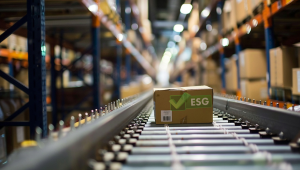Program Overview
This program provides a comprehensive introduction to Direct-to-Consumer (D2C) e-commerce models, equipping participants with foundational knowledge of platform setup, logistics, and customer acquisition strategies. The course integrates real-life examples, situational awareness, and practical exercises to help professionals understand the operational aspects of D2C businesses. Participants will also explore emerging technologies and innovative approaches for optimizing performance and solving real-world challenges in the D2C ecosystem.
Features
- Understand the basics of D2C e-commerce platforms and their operational setup.
- Gain insights into logistics, customer acquisition, and retention strategies.
- Explore emerging technologies and innovations shaping the D2C ecosystem.
- Develop actionable solutions for addressing real-world challenges in D2C operations.
Target audiences
- E-commerce Executives
- Digital Marketing Analysts
- Junior Brand Managers
- Supply Chain Analysts
Curriculum
- 5 Sections
- 26 Lessons
- 1 Day
Expand all sectionsCollapse all sections
- Overview of D2C E-Commerce Models5
- 1.1Definition and core principles of D2C models.
- 1.2Differences between D2C, B2C, and marketplace-based e-commerce
- 1.3Advantages and limitations of D2C platforms
- 1.4Keywords: Brand ownership, customer lifetime value (CLV), margin optimization, first-party data.
- 1.5Group discussion: Analyze and map out different D2C brands participants are familiar with, identifying their unique value propositions.
- Basics of D2C Platforms and Their Setup5
- 2.1Step-by-step process to establish a D2C e-commerce platform: website setup, platform selection, and integration tools.
- 2.2Legal and compliance considerations for D2C operations.
- 2.3Keywords: Omnichannel strategy, Shopify, WooCommerce, payment gateways, inventory management systems (IMS).
- 2.4Case Study of well-known D2C brands and lessons learned.
- 2.5Interactive Simulation: Design a basic D2C platform using case scenarios, including product catalog creation, payment setup, and inventory management.
- Functional Insights into Logistics, Customer Acquisition, and Retention6
- 3.1Logistics: Managing end-to-end supply chain, warehousing, and last-mile delivery.
- 3.2Customer Acquisition: Performance marketing basics, SEO/SEM, social media marketing, and influencer partnerships.
- 3.3Customer Retention: Building loyalty through personalized experiences, subscription models, and effective CRM.
- 3.4Keywords: ROAS (Return on Ad Spend), CAC (Customer Acquisition Cost), RFM analysis, last-mile delivery, cart abandonment strategies.
- 3.5Case Study: Analysis of logistics and marketing strategies of popular D2C brands.
- 3.6Team activity: Develop a mini go-to-market strategy, including logistics, marketing, and retention plans for a hypothetical D2C product.
- Emerging Technologies in the D2C Ecosystem7
- 4.1Role of AI/ML in personalized recommendations and predictive analytics.
- 4.2Conversational commerce (chatbots and voice assistants).
- 4.3Augmented reality (AR) for immersive shopping experiences.
- 4.4Blockchain for supply chain transparency and customer trust.
- 4.5Keywords: Conversational AI, AR/VR, blockchain, personalization engines, data privacy.
- 4.6Case studies on how emerging technologies revolutionized D2C businesses.
- 4.7Brainstorming session: Design innovative technology solutions for common D2C challenges (e.g., personalization or logistics optimization).
- Resolving Real-World D2C Challenges3
- 5.1Common pitfalls and how to avoid them: scaling challenges, maintaining product quality, and managing customer expectations.
- 5.2Metrics for success: revenue, retention rates, and customer satisfaction scores.
- 5.3Interactive Exercise: Tackle a pre-designed challenge scenario (e.g., resolving high cart abandonment rates or streamlining last-mile delivery).






